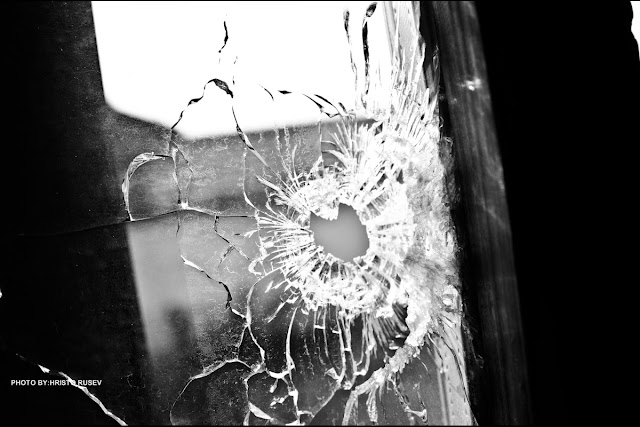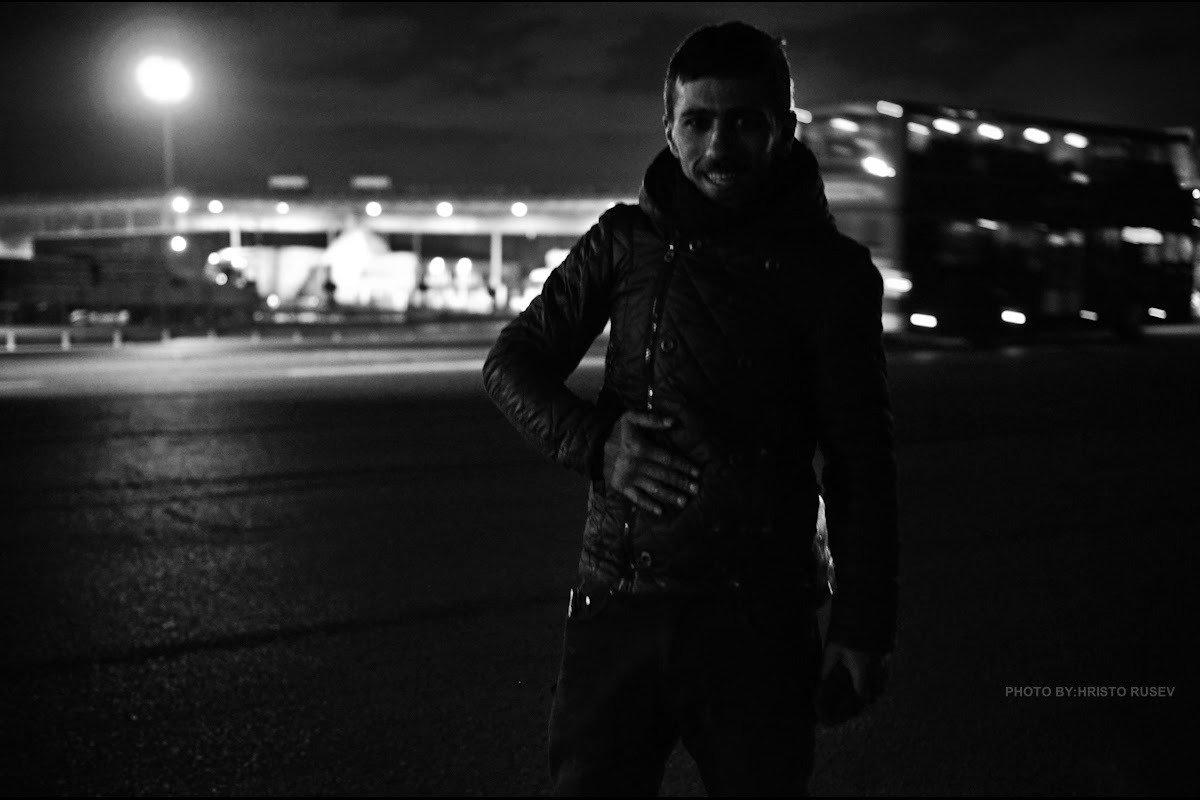Photo by © Hristo Rusev 2015
A war-ravaged street “Tode Mendol” in the Albanian quarter of the town of Kumanovo is a sad reminder of the anti terrorist operation held in Macedonia two weeks ago. What happened then in the country’s second biggest town still raises more question that it provides answers. What was proclaimed by the Gruevski’s government as a strike against dangerous terror unit has led to the destruction of tens of houses with hundreds of people left homeless or lost their small businesses. Now all the rooftops in the neighbourhood look like giant craters, with large hole in walls and the smelt of burnt still lingering through the street. A row of smashed and burnt vehicle outside homes is another sad sign of how tense the attack on the neighbourhood was. “My whole family of 12 was in the house when the attack began. We managed to hide in the cellar but then all of a sudden I realized that the house above us is on fire. We somehow succeeded in running into the street with our hand held high to show them we were not criminals. Thank god all my loved ones are alive”, an old man says. He is adamant that there are no terrorist in Kumanovo and the Albanian population is not interested in insurgencies and creating ethnical tension. One of his neighbours has lost his small barbershop and is now determined to move out of the town in search of ways to make a living. “What happened to Kumanovo is politicians’ fault. Now I am homeless, my shop I worked so hard to build is destroyed. No place for me here any more”, the man says. Everyone in the street compare their recent experience to a small war. According to the official date 8 policemen and 14 terrrorist were killed during the operation. But the questioned no one has answered so far is how the supposed terrorist managed to get into civilians’ houses. People in Kumanovo are convinced that the state will help them repair their damaged homes but they are not so optimistic when asked when would that happen. “In 2-3 years”, they reply.
Photo by © Hristo Rusev 2015
Meanwhile people in the capital Skopie are convinced that the attack of Kumanovo was orchestrated by the government in an attempt to move the attention from the protests. The capital lives a life of pro and anti government protests. But what most of them agree on is that Gruevski and his cabinet owe some explanations of what happened in Kumanovo and how it is going to be justified.
Photo by © Hristo Rusev/Nur Photo Agency/ 2015
A war-ravaged street “Tode Mendol” in the Albanian quarter of the town of Kumanovo is a sad reminder of the anti terrorist operation held in Macedonia a week ago. What happened then in the country’s second biggest town still raises more question that it provides answers. What was proclaimed by the Gruevski’s government as a strike against dangerous terror unit has led to the destruction of tens of houses with hundreds of people left homeless or lost their small businesses.According to the official date 8 policemen and 14 terrrorist were killed during the operation. But the questioned no one has answered so far is how the supposed terrorist managed to get into civilians’ houses. People in Kumanovo are convinced that the state will help them repair their damaged homes but they are not so optimistic when asked when would that happen. “In 2-3 years”, they reply.
Photo by © Hristo Rusev 2015
Photo by © Hristo Rusev 2015
Photo by © Hristo Rusev 2015
Photo by © Hristo Rusev/Nur Photo Agency/ 2015
Photo by © Hristo Rusev 2015
Photo by © Hristo Rusev 2015
Photo by © Hristo Rusev 2015
Photo by © Hristo Rusev/Nur Photo Agency/ 2015
Photo by © Hristo Rusev 2015
Photo by © Hristo Rusev 2015
Photo by © Hristo Rusev 2015
Photo by © Hristo Rusev 2015Photo by © Hristo Rusev 2015
Photo by © Hristo Rusev 2015
Photo by © Hristo Rusev/Nur Photo Agency/ 2015
Photo by © Hristo Rusev 2015
Photo by © Hristo Rusev 2015
Photo by © Hristo Rusev 2015
Photo by © Hristo Rusev 2015
Photo by © Hristo Rusev 2015
Photo by © Hristo Rusev 2015
Photo by © Hristo Rusev 2015
Photo by © Hristo Rusev 2015Photo by © Hristo Rusev 2015
Photo by © Hristo Rusev/Nur Photo Agency/ 2015
Photo by © Hristo Rusev 2015
Photo by © Hristo Rusev/Nur Photo Agency/ 2015Photo by © Hristo Rusev/Nur Photo Agency/ 2015
Photo by © Hristo Rusev/Nur Photo Agency/ 2015
Photo by © Hristo Rusev/Nur Photo Agency/ 2015
Photo by © Hristo Rusev 2015
Photo by © Hristo Rusev 2015
Photos by © Hristo Rusev 2015
©Nur Photo Agency
All Rights Reserved!!!



































.jpg)
.jpg)
.jpg)
.jpg)
.jpg)
.jpg)
.jpg)
.jpg)
.jpg)
.jpg)
.jpg)
.jpg)
.jpg)
.jpg)
.jpg)
.jpg)
.jpg)
.jpg)
.jpg)
.jpg)
.jpg)
.jpg)
.jpg)
.jpg)
.jpg)
.jpg)
.jpg)
.jpg)
.jpg)
.jpg)
.jpg)
.jpg)
.jpg)















